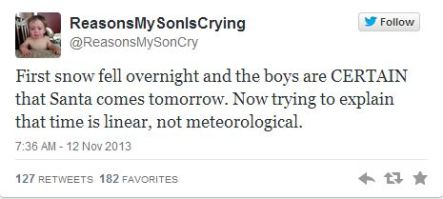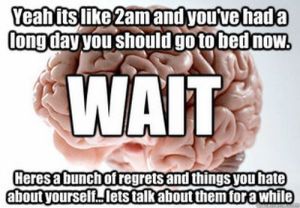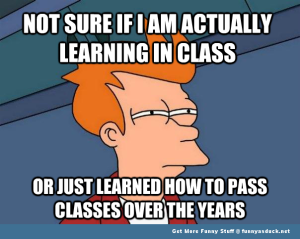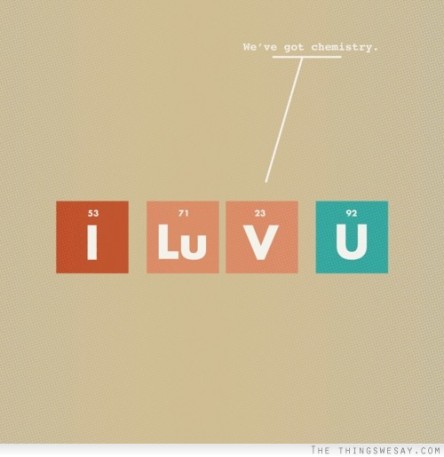
Source
“The most beautiful experience we can have is the mysterious – the fundamental emotion which stands at the cradle of true art and true science.”
― Albert Einstein
There is a emotion center labelled in the brain. According to science, all emotion originates or is processed in the amygdala. Though thinking back, I have no idea whether the emotions are caused by the amygdala or affect it. Which roots back to the whole idea of perceptions – are they created by the brain or do they create brain activity by stimulating specific neural pathways. This depends on your philosophical viewpoint in a sense. On one hand you could believe that we should doubt our very existence, in which case, perceptual experiences are the result of our brain activity – our brain creates our experiences. Of course you could take it a step further and say we don’t even have a brain and we cannot know we exist in any form. Which quite frankly has always struck me as senseless. On the other hand, you could argue that we developed sophisticated sensory systems to be able to detect stimuli, we have studied these stimuli extensively, and the brain react to the stimuli. Which fits more with my practical side, but leave me with the problem of how does the brain construct the mental images? I am still working on that one, hopefully I will have an answer to that, and in general the brain question (i.e. What does the brain do?) next week. For now, I shall return to the concept of emotions.
Emotions are a pretty busy and varied area of psychology so allow me to boil down the key issues with emotions as I see them:
- Science has located the biological center but cannot explain the mechanism
- Science tries to remove emotions from science, but this is essentially impossible – emotions are a part of us. I can’t stop my emotions any more effectively that I can stop breathing.
- Emotions impact everything we do – have you ever heard noticed how your emotions colour EVERYTHING! The same event, missing the bus is a totally different thing if you’re upset because you failed a midterm versus if you got a good night’s rest and are looking forward to a date.
- We are not always experts at emotions, they’re not always apparent.
- Emotions are either part of consciousness or born out of consciousness.
Sitting on the bus Tuesday night, I looked around and realized everyone was likely thinking something. Or so my female mind tells me (according to comedians it is actually possible for men to not be thinking ANYTHING). So everyone on the bus was thinking something. In my experience, everything to some degree has an evaluative component.
In mediating on emotions I came to a slow and peaceful realization of the distinction between the public and private emotions. We have the expression “wearing your heart on your sleeve.” Meaning you make no attempt or are unable to conceal your emotions. I argue this is part of a more general expressiveness. People show the really powerful emotions, or they usually do – and which we see them naming them, we have no difficulty naming them. But what about mixed emotions? We do not always feel one thing.

Thankfully there was no one this tired. I am alarmingly close.
Sitting on the bus, I can see people who are tired, but that, beyond, the concept of psychache, is not really an emotion. I am sure they were thinking about things, feeling things under the surface, but superficially all I could see was the tiredness. Humans are capable of an unimaginable array of emotions, science has attempted to find a set of “core” emotions, basic things like anger, sadness, happiness, surprise. But we don’t always have these simple emotions that can be neatly packaged up. Sometimes our “head and our heart disagree” (i.e. our logical and rational thought system, wherever that is, and our emotions are telling us to do different things). And then things get messy. This is essentially why science tries to eliminate these things. Ironically, at least here in North America, we talk about how couples (particularly actors) “have great chemistry.” Somewhere Neils Bohr just turned over in his grave.
It’s the emotions that complicate the science of psychology. This boils down to an overarching experience or issue of things being made more complicated than they need to be and more simple than they can be. We can’t remove emotions from our experiences, they’re the very thing that taint our perception. So we try to remove emotions, be completely unbiased, my psych profs have repeatedly told me that we try to be interested in the results either way, out of scientific curiosity. Really, I don’t think that’s possible, yes some experiments may actually be interesting for interest sake, but we develop hypothesis – mini-theories of sorts that state what we are expecting to happen. To have those expectations invalidated is useful in allowing us to grow and learn, but at the same token, it sucks. It sucks to be wrong. And we get sad, or frustrated, disappointed, maybe even angry. Our hope that we are right, may guide our interpretations, our desire to avoid the negative emotions could affect how we interpret things. At the same time, we do not live in a vacuum – in the background, beyond the experiment is our lives. The things that really matter to us as individuals. We may be sad because of a break-up or dreading a visit from the in-laws (for the record, I have never had an awful boyfriend’s family experience, I’m starting to wonder why everyone dreads the in-laws) – and that affects how they carry out the experiment or interpret the results. It’s the same in daily life – like I mentioned before – say you just failed a midterm, and someone steps on your foot on the bus, you are going to react differently than if you just found out you aced the midterm.
So to say that science can remove emotions is laughable – you can’t – it is part of our consciousness. Are they consciousness? Well I guess that requires an understanding of consciousness, which could be an entire post on it’s own – but let’s do the SparkNotes version.
Consciousness=awareness of your existence
Unconsciousness=existing without awareness
People sometimes have talked about unconscious emotions – and I’ve read studies that demonstrate implicit feelings that individuals are unaware they’re feeling – racist reactions are a big one – i.e. science has supposedly proven that even if explicitly you state you are not racist, and your general behaviour agrees with that, there are subtle indicators of your us-them bias. Which is interesting, though at this point we may be stretching too far in our generalizations.
To what degree is the unconscious a valid indicator of someone’s emotions? To what degree do those “unconscious motives/emotions” guide our behaviour? This is the bedrock of the problem of whether emotions are consciousness or merely a part of consciousness. If they are our consciousness then should we not be able to label them all the time? Should emotions not guide everything? In class I argued, almost on a whim, on the basis that emotions affect everything, that emotions are consciousness. Sitting back and thinking about it though, emotions don’t necessarily affect everything. Motivation plays a huge part. Some may argue that this is just another more complex emotion, but I don’t think so. Emotions impact motivation potentially. But I don’t think that emotions are necessarily a part of everything, at least not on a conscious level. When I wait to cross the street, it is not because I fear getting hit by a car (which is technically valid), it is because that is social norm. When I climb the stairs (I might wish I had taken the elevator), I am not feeling any emotion generally, at least not related to climbing the stairs.
After writing this, on a later bus ride I realized – was I perhaps unable to read the emotions of people on the bus because there were none? Is that possible? If emotions are to be consciousness, then they must always be present, we must be unable to evaluate or think without an associated emotion. But is exhaustion an emotion or a state of physical or mental existence?
I vacuumed Saturday morning, I was distracted thinking about other things I was going to do, but did I have an emotion or some sort of appraisal of vacuuming? No. I was simply doing something, yet I was conscious of that. Neutrality isn’t really an emotion. At the same background thoughts of future plans or past events may also be generating emotions that are completely unrelated. What is interesting and forms a sticking point for me, is how I may be unaware of emotions, I may even not be feeling anything – but when someone asks me how I am feeling, I can tell them…usually. Does this mean that emotions are part of the unconscious, the background noise of our lives that can be brought forward into consciousness? Or do we actually include emotions in all areas of our lives, we just don’t think of them as emotions because we do not have the language to articulate the emotions? Are thoughts as I watch people on the bus emotions, appraisals, or simply thoughts?
So emotions aren’t everything, motivations and social norms also play a role (though they too may be considered variations of emotional states), but emotions have the potential to impact everything.
In meditating on science and emotions and decision making an interesting concept became clear. We try to remove emotions when we make decisions or guide our behaviour because they can be rash, they are volatile and out of our control (much like our own consciousness – we can choose to ignore things, but this requires some degree of consciousness). Jury, business, and medical decisions are all supposed to be based on fact. Psychologists are expected to be completely unbiased, empathic, but not emotionally involved. We pretend that this is the way things actually are because if we accept that emotions can be illogical, AND we accept that they CANNOT be eliminated from decisions, then our reasoning is not actually logical, and we are no longer wise and rational beings. We become a slave to the illogical, to the chaos of our minds. And yet when an individual completely lacks emotions, or the ability to show/react to emotions, like Dexter, we pathologize it. Something just isn’t right.
Basically? We want to have our cake and eat it too.
What is interesting to me is how different cultures deal with emotions and show them, and how that affects our understanding. For example, the Japanese are known for their lack of emotional expression (or at least traditionally). To say you’re depressed or display anger publicly is disapproved. I’ve been doing a lot of research lately on eating disorders for various papers and proposals, and what strikes me is how the Japanese have been found to display a non-fat-phobic version of anorexia nervosa. I reference this to EDs in children, a growing area of research, as children are largely considered to be unable to articulate and understand their own emotional experiences, which could explain the atypical presentation in Japanese individuals – if emotional displays are not appropriate, like children, they may lack the fat phobic trait either because the expression may be foreign to them, or because culturally expression of such individual desires may be inappropriate.
How we experience and display emotions are partially culturally derived, but also inherently variant and potentially contradictory. For example, outside of NY, even if you are experiencing heart-wrenching pain, crying on public transit is generally bizarre. So maybe you put on a mask of calm, maybe even try some good ol’ fashioned opposite action and smile. Either way, public transportation is a no-cry zone. So emotions, in my opinion, are somewhat inevitable, displaying them is optional.
So scientists pretend to be unbiased, I don’t think that’s really possible. What is possible, is controlling your actions, somewhat. So science is essentially alogical because of the inductive reasoning, and illogical because it is tainted by emotions, and essentially science then becomes an exercise is how convincing you are. Not truly on how convincing the evidence is. I have read articles where the author talks up the results and then you examine yourself, and they’re significant, but only statistically so, in real life it is hardly worth any pomp and circumstance.
What about the really powerful emotions? Sometimes, you just feel too much – they become uncontrollable.
So what does this say about emotions?
As I’ve said before, emotions cannot be explained by the brain’s activities, I refuse to accept that emotions can truly be simply a neurochemical cocktail. I see emotions as both uncontrollable – you can’t control love, you can’t help but feel sad when someone you love dies – and at the same time incredibly malleable – which is the very principle behind cognitive behavioural therapies. But then what are emotions, scientists really hate the intangible, so I feel like I should come up with some sort of hypothesis that will eventually be proven wrong. I propose that this is essentially no different that perception to a degree.
There is a chicken and the egg debate in both, and neither can pinpoint exactly how those neural signals are converted back into mental images of the sensory world. Maybe the difference with emotions is the evaluative component but also the fact that emotions are percepts of the unobservable.
I still have a long way to go in understanding emotions, a prelude to understanding my own emotions I suppose, but what is incredibly fascinating to me is that they are always changing. I think our emotions hold the power to alter the connections in our brains, to bias our perceptions and interpretations – a sort of stimulus acting on the brain from within whatever source of being defines that which science has yet to explain.
The science kids are confident that we only say science can’t explain things because it hasn’t developed the technology to do so – but how can you boil something so potentially irrational and volatile down to a complex, but logically organized sequence of firing neurons and neurotransmitter releases? I don’t think science can or should explain emotions, but I still don’t agree that the reactions can be so instantaneous that we can experience the flashes of emotion. Science has done some pretty cool stuff, but please science – don’t take away the magic of love.
What do you think? Has science already explained the emotions? Will it? Should it?
Also, not a huge fan of making emotions a scientific theory – but this is pretty cool (don’t ask me why happiness is completely isolated)

“I think there is something beautiful in reveling in sadness. The proof is how beautiful sad songs can be. So I don’t think being sad is to be avoided. It’s apathy and boredom you want to avoid. But feeling anything is good, I think. Maybe that’s sadistic of me.”
― Joseph Gordon-Levitt













